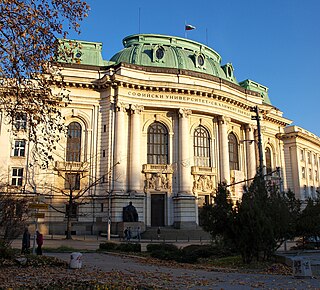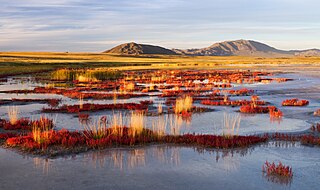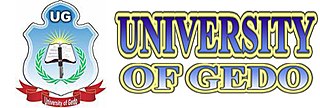Grading in education is the process of applying standardized measurements of varying levels of achievement in a course. Grades can be assigned as letters, as a range, as a percentage, or as a number out of a possible total.

Education in Canada is for the most part provided publicly, and is funded and overseen by provincial, territorial and local governments. Education is within provincial jurisdiction and the curriculum is overseen by the province. Education in Canada is generally divided into primary education, followed by secondary education and post-secondary. Within the provinces under the ministry of education, there are district school boards administering the educational programs.
Education in Greece is centralized and governed by the Ministry of Education and Religious Affairs (Υ.ΠΑΙ.Θ.) at all levels. The Ministry exercises control over public schools, formulates and implements legislation, administers the budget, coordinates national level university entrance examinations, sets up the national curriculum, appoints public school teaching staff, and coordinates other services.

In Russia, the state provides most education services regulating education through the Ministry of Education and Science. Regional authorities regulate education within their jurisdictions within the prevailing framework of federal laws. Russia's expenditure on education has grown from 2.7% of the GDP in 2005 to 3.8% in 2013, but remains below the OECD average of 5.2%. Corruption is common in Russian universities, students often have to pay bribes to pass an exam.

The National Blue Ribbon Schools Program is a U.S. Department of Education award program created in 1982 that recognizes exemplary public and non-public schools on a yearly basis. Using standards of excellence evidenced by student achievement measures, the Department honors high-performing schools and schools that are making great strides in closing any achievement gaps between students.
Education in Iran is centralized and divided into K-12 education plus higher education. Elementary and secondary education is supervised by the Ministry of Education and higher education is under supervision of Ministry of Science, research and Technology and Ministry of Health and Medical Education. As of September 2015, 93% of the Iranian adult population are literate. In 2008, 85% of the Iranian adult population were literate, well ahead of the regional average of 62%. This rate increases to 97% among young adults without any gender discrepancy. By 2007, Iran had a student to workforce population ratio of 10.2%, standing among the countries with highest ratio in the world.
A secondary modern school is a type of secondary school that existed throughout England, Wales and Northern Ireland from 1944 until the 1970s under the Tripartite System. Schools of this type continue in Northern Ireland, where they are usually referred to as secondary schools, and in areas of England, such as Buckinghamshire, Lincolnshire and Wirral,.

The education system in Switzerland is very diverse, because the constitution of Switzerland delegates the authority for the school system mainly to the cantons. The Swiss constitution sets the foundations, namely that primary school is obligatory for every child and is free in public schools and that the confederation can run or support universities.

The system of education in Uganda has a structure of 7 years of primary education, 6 years of secondary education, and 3 to 5 years of post-secondary education, according to Education News Uganda The government of Uganda recognizes education as a basic human right and continues to strive to provide free primary education to all children in the country. However, issues with funding, teacher training, rural populations, and inadequate facilities continue to hinder the progress of educational development in Uganda. Girls in Uganda are disproportionately discriminated against in terms of education; they face harsher barriers when trying to gain an education and it has left the female population disenfranchised, despite government efforts to close the gap.

Garbahare is the capital of Gedo, an administrative region in southern Somalia inhabited primarily by the Marehan.

Borama is the capital and the largest city of the northwestern Awdal region of Somaliland The commercial seat of the province, it is situated near the border with Ethiopia.

Education in Bulgaria is overseen by the Ministry of Education and Science. Since 2012, compulsory education includes two years of preschool education, before children start primary school. Education is compulsory until age of 16. Education at state-owned schools is free of charge, except for the higher education schools, colleges and universities.

Education in Nigeria is overseen by the Federal Ministry of Education.The local authorities take responsibility for implementing state-controlled policy regarding public education and state schools. The education system is divided into Kindergarten, Primary education, Secondary education and Tertiary education. Nigeria's central government has been dominated by instability since declaring independence from Britain, and as a result, a unified set of education policies is yet to be successfully implemented. Regional differences in quality, curriculum, and funding characterize the education system in Nigeria. Currently, Nigeria possesses the largest population of out-of-school learning youths in the world.
Education in Tanzania is provided by both the public and private sectors, starting with pre-primary education, followed by primary, secondary ordinary, secondary advanced, and ideally, university level education. Free and accessible education is a human right in Tanzania. The Tanzanian government began to emphasize the importance of education shortly after its independence in 1961. Curriculum is standardized by level, and it is the basis for the national examinations. Achievement levels are important, yet there are various causes of children not receiving the education that they need, including the need to help families with work, poor accessibility, and a variety of learning disabilities. While there is a lack of resources for special needs education, Tanzania has committed to inclusive education and attention on disadvantaged learners, as pointed out in the 2006 Education Sector Review AIDE-MEMORE. The government's National Strategy for Growth and Reduction of Poverty in 2005 heavily emphasized on education and literacy.
The educational system in California consists of public, NPS, and private schools in the U.S. state of California, including the public University of California, California State University, and California Community Colleges systems, private colleges and universities, and public and private elementary, middle, and high schools.

Uvs Lake Basin is an endorheic basin located on the territorial border of Mongolia and Tuva, a republic of the Russian Federation. The basin is part of the Central Asian Internal Drainage Basin and is named after Uvs Lake, a large saline lake situated in the western part of its drainage basin and is one of the last remnants of the mammoth steppes. Uvs Lake is a shallow lake with an area of 3,350 km2 (1,290 sq mi). Its entire basin, which includes several smaller lakes, is 70,000 km2 (27,000 sq mi).
There are four grading systems in Greece – four different GPA – one for higher education, one for secondary education, and two for primary education.

University of Gedo is a public university in the city of Bardera situated in the Gedo region of Somalia.
This is a list of grading systems used by countries of the world, primarily within the fields of secondary education and university education, organised by continent with links to specifics in numerous entries.










